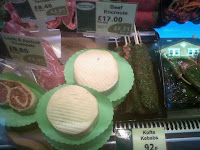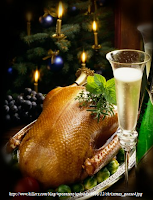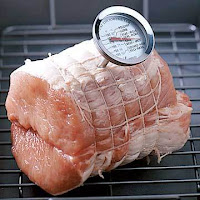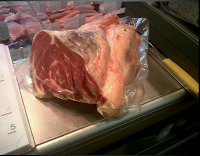
So I was in the pub and a local pointed me to this article in the Guardian (I'm an Independent reader) .
Now reading this piece by Fiona Beckett I felt heartened but also a little bit sad.
Okay, so at the end of a long day at the block, most butchers are chomping at the bit at quarter to 5, not just eager but desperate to go home or get a quick pint in.
This attitude needs to change, in our industry we must make more of a conscious effort to have the best possible product with the outstanding service. Since you will not get this in a supermarket, it is just impossible - as you remain anonymous and so do they.
The butcher needs to be more friendly, approachable and offer a decent product, but politeness is half of the battle.
So what can you do? Well, you mustn't be intimidated - for good meat (from traceability to flavour) you must engage in conversation and talk to your butcher - trust me they want to help you, and they want you to return.
Convenience is the age old argument for not going out of your way to the shop. Fine. But most butchers strive to get a nice looking shop with the best in terms of equipment. What's the key to success I hear you ask? Parking. It doesn't matter how good your shop is, if they can't get parked you can't get custom. Every butcher dreams of getting a spot with parking available. This is so that it is more accessible for people to travel, thus selling lots of food.
What I do like about this article is that it is another great advert about the importance of knowing where your food is coming from. From farm to fork. This is important, other wise you genuinely have no idea what you are eating - the label on the back doesn't say which gasses have been injected to keep the meat looking pink and I don't know how the big stores manage to get every chicken looking the same, down to the exact same weight. Spooky.
This industry needs oomph. It needs enthusiasm. It needs a love of food. At a reasonable cost.
Life's far too short to eat bad meat, and it won't necessarily break the bank, I can assure you.
The way that supermarkets are going meat is becoming more expensive every day.
The price of bacon is going up anyway, pigs do fly.
gb





















